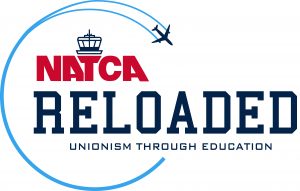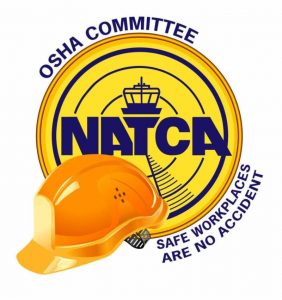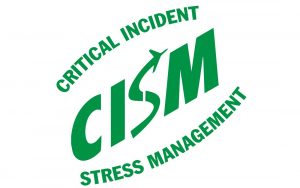
April 2023 New England Bi-Monthly Regional Update #2
From Bryan Krampovitis, NATCA New England ARVP
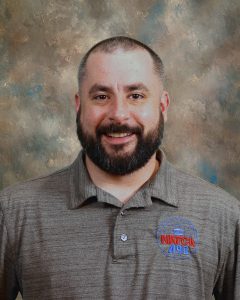
Convention booklets are coming!
It’s convention time, and constitution amendment and resolution booklets have been sent to the printers. They will arrive by mail at the address you have listed in MyNATCA (if you need to update your information in MyNATCA, you can find more information at the end of this email).
As I’ve said in the past, convention is my favorite NATCA event. Seeing the entire convention body and hearing our members passionately address the convention is something everyone should witness at least once as a NATCA member.
Booklets should hit your mailboxes in about a week or two. Please open them up, read them, and take notes. Talk with the members in your building about them. Hear all the different arguments on the issue. Go to your Area Reps, your convention delegates, and your FacReps. Tell them what you think of the amendments and resolutions. This is OUR union, and convention is the time for us to set the path for the next two years. I have previewed a few of the amendments up for consideration at this convention, and there are some interesting topics coming up for debate.
It’s possible reading some of the amendments proposed will make you think of an amendment that would better this union that hasn’t been submitted. While it’s too late to submit a timely amendment, nothing stops you from going to your convention delegate and asking them to submit an untimely amendment on the day of convention and have it considered by the convention body.
If this was something you wanted to do I recommend writing up the amendment exactly how you want it presented to the membership, and giving it to your delegate. You will also need to find a second member that will be attending convention who will support your amendment being heard. Lastly, you’ll need to write up a speech for the amendment for your delegate to read to the body on your behalf. If your amendment has merit, the convention body will consider it and vote on it, and you’ll be able to watch it live on the convention live stream.
The one thing I ask is please don’t get the book in the mail and never look at it. This is OUR union. Convention is OUR chance to make this organization everything we think it should be, and prevent it from becoming something against our own interests. Your convention delegates are there representing YOU. Make sure they know exactly what you want out of them!
Collaboration
From Curt Fischer, Collaboration Facilitator, Eastern Service Area North, A90
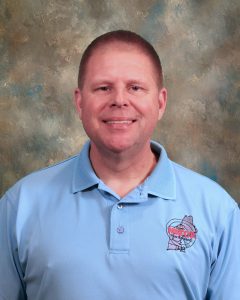
I would like to thank the membership at both Bangor and Portland for their hospitality this week during our New England leadership facility visits. It was great to visit your facilities, listen to your concerns and see that activism is alive and well. FacReps Benji Coburn and Steve Brown were gracious hosts.
In previous New England updates and classes, we have discussed the concept of determining what bucket a particular issue fits in. We teach our Reps to determine the path they take on a matter by asking questions such as, “Is this an Article 7?” etc.
As Collaboration Facilitators, we spend much of our time in the Article 114 bucket. We teach Collaborative Skills, Interest-based communication along with scoping Collaborative Workgroups (CWGs). In doing so, however, we spill into other buckets, and boundaries can become less clear. When collaborating, we share a common respect for the rights and responsibilities of the Union (Article 3) and the Agency (Article 5). We are able to enter into traditional negotiations in an interest-based manner as opposed to a positional one, dropping the more rigid structures of timelines, ground rules, and equal numbers.
Also since collaboration is not construed as a waiver of any Union or Agency right, we may discover that our Article 114 discussion may need to move the other way into a traditional Article 7 negotiation. When this transition occurs, clear concise communication is paramount as to not cause confusion between the parties involved with one side operating collaboratively and the other side operating in the traditional arena.
Recently in New England, we have had confusion surface when one side believes it is collaboratively engaging in meaningful dialogue with their counterpart before an outcome is determined and the other side believes it is engaging in MOU negotiations, invoking the processes and mechanisms such as authorization to bargain and LER/ETR guidance. The bottom line is to actively communicate the path ahead as to protect and maintain the relationship with your counterpart so that trust remains for the next collaborative discussion/decision you need to embark on together.
NATCA Reloaded
From Jennifer Dickinson, NATCA New England Reloaded Rep, BOS
Do you have a meeting coming up? Are you having difficulties getting members involved at your facility? Are you experiencing communication issues with your members? If you answered yes to any of these questions then the Reloaded Committee can help.
We have a catalog of wonderful classes available to you that can help with things such as Critical Thinking, Building a Stronger Local, NATCA101, Having a Difficult Conversation, and Collaborative Leadership to name a few. The Reloaded Committee is steadfast in their commitment to create and present classes to the membership that center on education.
If you would like to have a class taught at an upcoming event please reach out to the NATCA Reloaded Committee and we will work together to meet your needs. Also, if you haven’t done so already please remember to sign up on the NATCA portal for NATCA 101. This class is an invaluable resource for any union member taught on the 15th of every month. Hope to see you there!
OSHA
From Matt Murray, NATCA New England OSHA Rep, ZBW
Clean water is essential. To ensure that we have clean drinking water NATCA has worked with the Agency to create Joint Order 3900.61A which lays out specifically how and when we need to conduct water testing at all FAA and Contract facilities.
There are two main types of water testing: the unscheduled water test and the “Tri-Annual” water test. The unscheduled testing is in response to a triggering event like construction, bad taste, discoloration, or a boil water advisory. These tests are usually quick with results in 2-4 days. During a triggering event, the water should be deemed as unsafe for drinking and bottled water should be provided until the water tests show the water is safe again.
The “Tri-Annual” test is done once every three years and can be a little more invasive for workers depending on the size of and hours of operation at your facility. To do the metals testing the faucet must be marked “out of service” and in some cases taped off to ensure it is not used for a minimum of 6 hours. The 6-hour requirement is for the metals testing to ensure no metals are seeping into the water from the pipes. This is called the “First Draw Test”. After the first draw is complete the water is run for a minimum of 5 minutes before taking a sample for bacteria testing.
Our contract requires that we are invited to participate in and observe the testing process, which I recommend you always do, and to be provided the results of any and all water tests as soon as they are available.
If you want more information about water testing or are interested in becoming a part of NATCA’s OSHA team feel free to reach out to me at [email protected].
CISM
From Jennifer Dickinson, NATCA CISM Rep, BOS
Summer will be here before we know it! This is the time of year when we get to look forward to warm weather, beach days, BBQs, and getaways with family and friends. This is also the time of year when we experience severe weather, increased volume, overtime, and very challenging shifts.
It is very important that we do things that help to decrease stress. Examples of these activities include working out, deep breaths, getting together with a friend, going on a hike, taking time for a hobby, listening to music, or anything else that assists you with feeling relaxed.
Managing stress effectively helps you avoid burnout and ensures that you are ready to handle the difficulties ahead. Not managing your stress can result in sleep issues, irritability, fatigue, high blood pressure, and headaches. Recognizing the importance of self-care and stress mitigation will help you to live a more healthy and balanced life.
Lastly, we are all a team. It doesn’t matter if we don’t work at the same facility. We have a shared interest in doing the best job possible every day. As a result, it is important that we exercise patience with one another. When emotions are running high it can be difficult to see that someone is trying to do the best they can.
Assuming good intent first and foremost can often head off misunderstandings. Positive interactions lead to positive relationships. We are all in this together and when we work as a team and value one another we are unbreakable even during the most challenging of times.
“Individually we are one drop. Together we are the ocean.” -Unknown
Region X Member Highlight
NATCA New England is highlighting NATCA Region X members who live and work within New England. Learn more about who your local Region X brothers and sisters are and what they do.
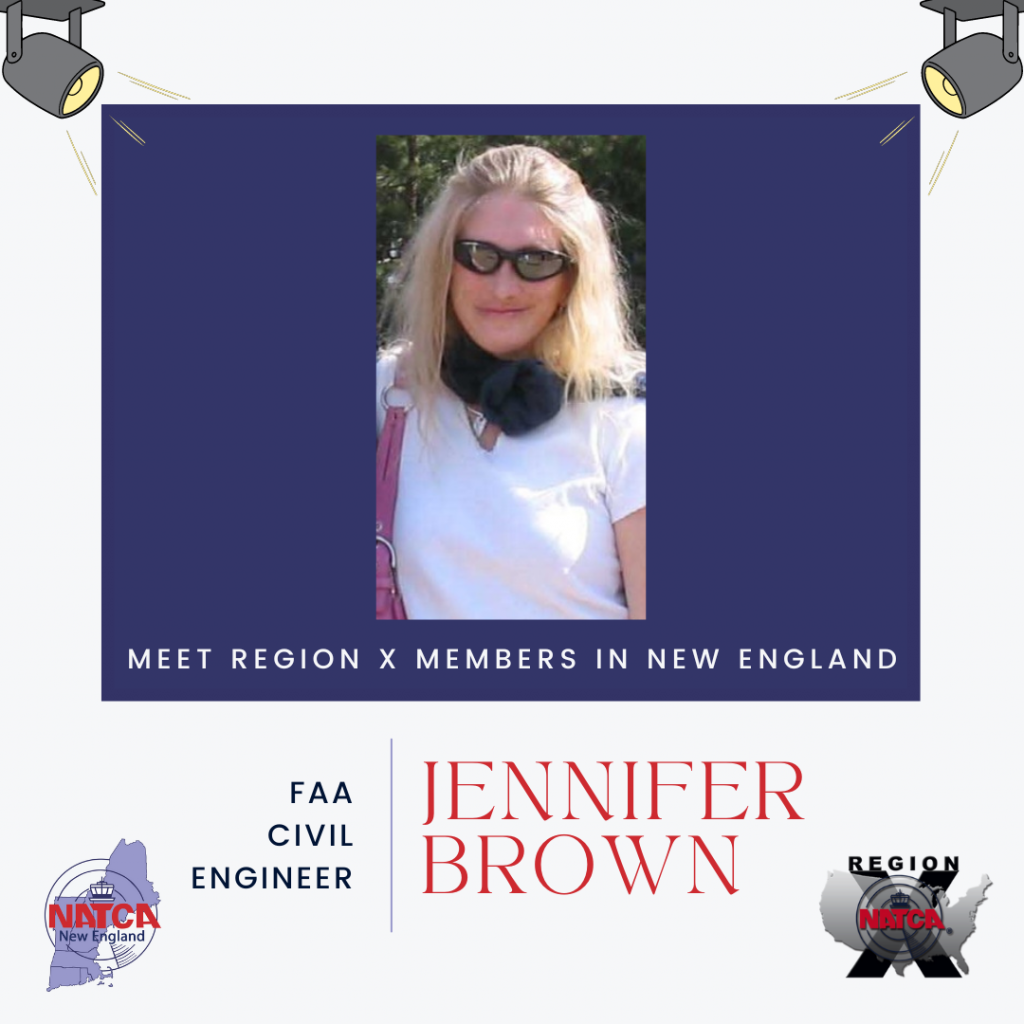
“I work with a licensed fire protection engineer to design new and replace existing fire and life safety systems, mainly tower and TRACON fire alarms. It is important on commissioning, to make sure the fire alarms are tested properly, with the other systems they control. I help SSC’s with fire alarm and life safety issues.
From modernizations to life safety work, I have worked at most of the New England air traffic control towers (BTV, LEB, MHT, HFD, BDL, HVN, DXR, GON, BAF, ORH, OWD, LWM, PVD, BOS), restoration at the old FMH TRACON and some small projects at A90, our only consolidated TRACON. I have been a long-term RE on two large tower projects at BDL in 1996-1999 and MHT in 2003-2005. I am currently scheduled to be the project engineer on the replacement of LEB ATCT in the next FY.
Our facilities are unique in that, in a fire emergency, the air traffic controllers have a delayed egress. This means controllers cannot just stand up and leave when the fire alarm is ringing like we would in an office building. This presents with unique challenges pertaining to safety. Our controllers first hand off air traffic to another facility before they safely exit the building. The FAA puts safeguards in place to make the surrounding spaces safer for air traffic controllers, by installing fire and smokestop systems, building firewalls and limiting combustibles in the egress path and around critical spaces, closing doors on alarms, and maintaining fire alarm systems that detect smoke, notify occupants and call the fire department automatically.
All of our New England towers, even BOS for one floor, have only one egress, one set of stairs, to use in an emergency. This is unusual because commercial buildings are required to have at least two sets of stairs, by code. To compensate for this single egress in towers, the FAA ensures the fire alarm systems are robust (class A and addressable), firewalls are maintained and exits are clear of unnecessary equipment.
In all of these ways, keeping our fire alarm and life safety systems working properly, increases safety for NATCA folks and the flying public safe.”
Announcements
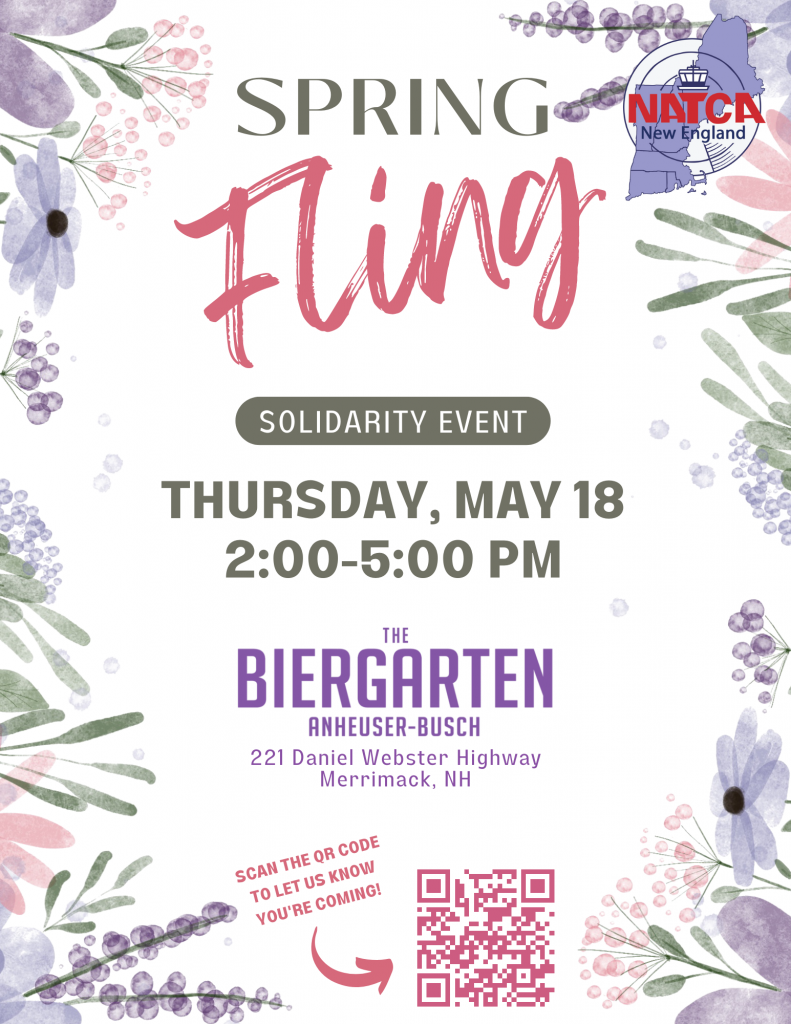
Please scan the QR code or sign up here if you plan to attend so we can get an accurate head count!
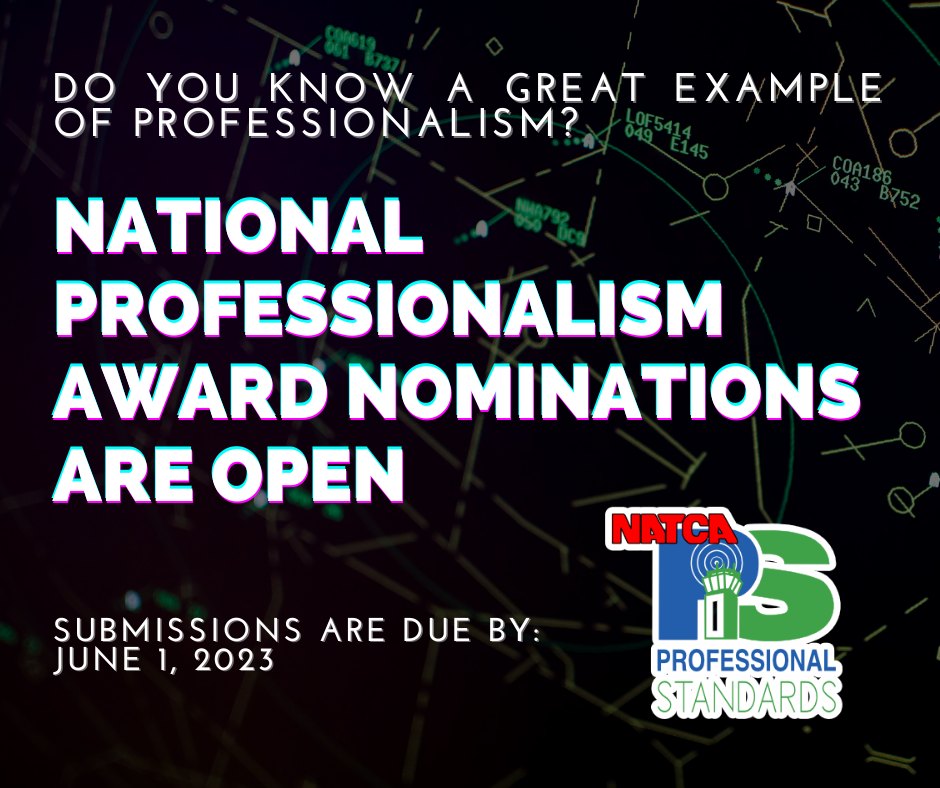
Do you work with someone who inspires you, motivates others, and demonstrates professionalism day-in and day-out? Don’t let that individual go through their entire career without getting recognized. Nominate them for the 2023 NATCA National Professionalism Award!
Award recipients will be selected from each service area and will receive a trip to Communicating for Safety to be recognized for their professionalism. Anyone may nominate a member in good standing for the award. There is no limit to the number of nominations for one individual (we recommend you encourage additional nominations from peers, management, pilots, etc. submitting their own statements, stories, and examples in support of the individual). In order to nominate you will be asked to provide a brief work history of the individual, as well as provide examples and statements showing how the individual inspires, motivates, and demonstrates professionalism in the workplace.
The deadline for nominations is June 1, 2023.
Nominate your peers at www.natca.org/professionalismaward.
Questions? Email [email protected]
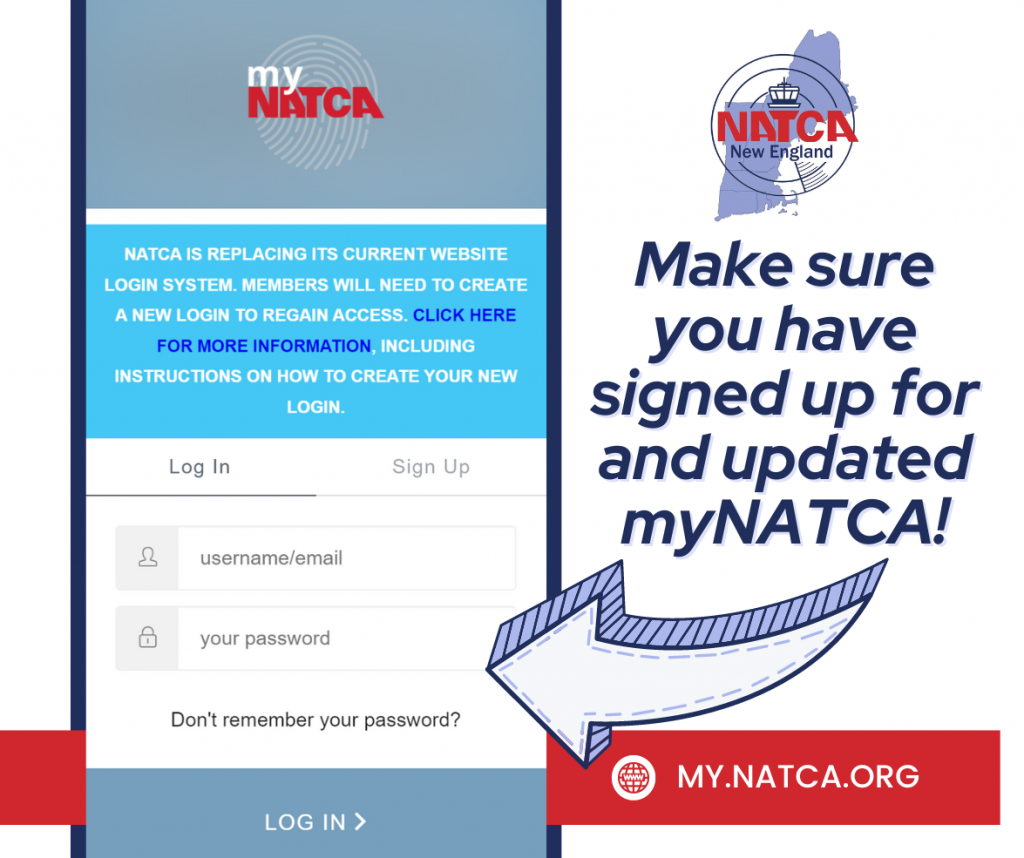
When is the last time you updated your information in MyNATCA?
MyNATCA contains your contact information such as your mailing address, phone number, email address, and more! By ensuring you keep your MyNATCA information up to date, you will ensure receiving the most up-to-date information from NATCA. Your MyNATCA preferred email address is where you will receive updates from NATCA National and from your Local’s listserve. All Local listserves are being transferred over to this new system, so if your information is not updated in MyNATCA, you will not receive your Local’s emails.
There are two ways to access your MyNATCA profile:
- Go to https://my.natca.org and login.
- Through the NATCA Website: https://www.natca.org. (Click the “Members Home” link at the upper right corner. This will take you to a login page where you can enter your username and password for your account. Hover over “My Account” in the upper right-hand corner and click “Profile” to access MyNATCA.)

